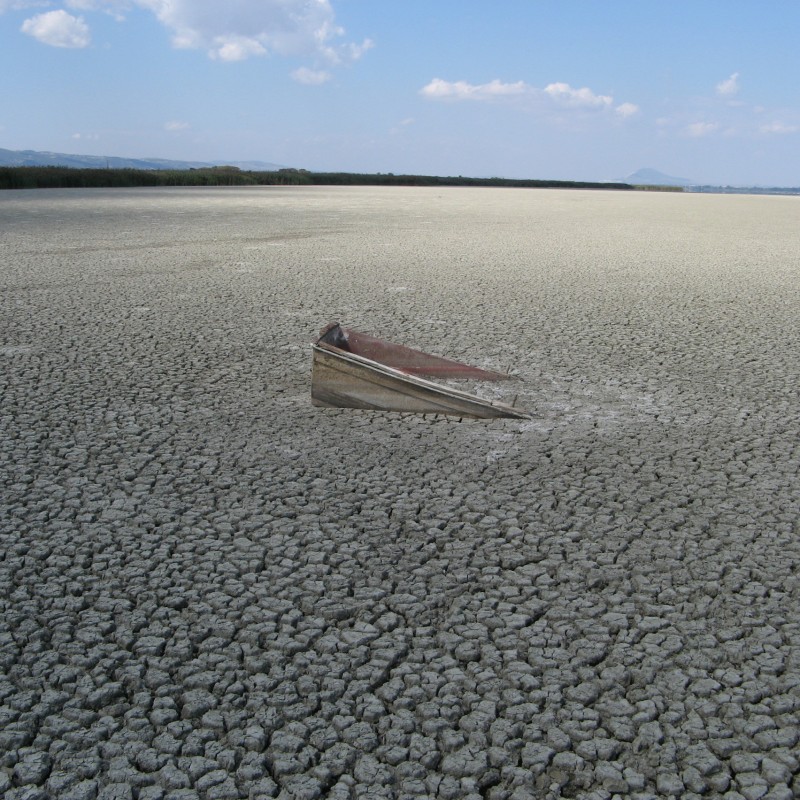A new study shows: Humans more consequential than an asteroid impact!
21. May 2021
An international study with the participation of the Natural History Museum in Vienna shows the dramatic impact of humans
on the earth's freshwater systems.
The current biodiversity crisis is one of the critical
challenges we face in the 21st century. Numerous species are threatened by extinction, mostly as a direct or indirect consequence
of human impact. Habitat destruction, climate change and pollution are among the main causes for Earth’s biota to decline
rapidly. An international team of evolutionary biologists, paleontologists, geologists and modelers, led by the Justus Liebig
University Giessen, compared today’s crisis with the last global extinction event 66 million years ago in order to investigate
the speed of extinction and to predict recovery times. That event was the result of an asteroid impact, which killed the dinosaurs
and eradicated about 76% of all species on the planet. The team of scientists, which included also paleontologists from the
Natural History Museum in Vienna, focused on the most threatened freshwater biota.
The scientists gathered a large dataset containing 3,387 fossil and living snail species of Europe covering the past 200 million years. Rates of speciation and extinction were calculated to assess the speed at which species develop and to predict recovery times after extinction events. While the extinction rate 66 million years ago was considerably higher than previously believed for freshwater biota, it is drastically overshadowed by the predicted future extinction rate of the current mass extinction event. On average, the predicted rate is three orders of magnitude higher than during the time the dinosaurs went extinct. Already by 2120 a third of the living freshwater species may have vanished.
“The speed at which we lose species today is unprecedented and has not even been reached during major extinction crises in the past“, says the lead author of the study, Dr. Thomas A. Neubauer.
After the asteroid impact, ecosystems took 5 million years to restore and the balance between speciation and extinction was not reached for incredible 12 million years. „From a geological point of view, we think in ridiculously short time spans, but our actions will impact life on Earth for millions of years – even if mankind will already have disappeared”, says Mathias Harzhauser from the Natural History Museum in Vienna.
The results of the study: journal Communications Earth & Environment
https://doi.org/10.1038/s43247-021-00167-x
The scientists gathered a large dataset containing 3,387 fossil and living snail species of Europe covering the past 200 million years. Rates of speciation and extinction were calculated to assess the speed at which species develop and to predict recovery times after extinction events. While the extinction rate 66 million years ago was considerably higher than previously believed for freshwater biota, it is drastically overshadowed by the predicted future extinction rate of the current mass extinction event. On average, the predicted rate is three orders of magnitude higher than during the time the dinosaurs went extinct. Already by 2120 a third of the living freshwater species may have vanished.
“The speed at which we lose species today is unprecedented and has not even been reached during major extinction crises in the past“, says the lead author of the study, Dr. Thomas A. Neubauer.
After the asteroid impact, ecosystems took 5 million years to restore and the balance between speciation and extinction was not reached for incredible 12 million years. „From a geological point of view, we think in ridiculously short time spans, but our actions will impact life on Earth for millions of years – even if mankind will already have disappeared”, says Mathias Harzhauser from the Natural History Museum in Vienna.
The results of the study: journal Communications Earth & Environment
https://doi.org/10.1038/s43247-021-00167-x


